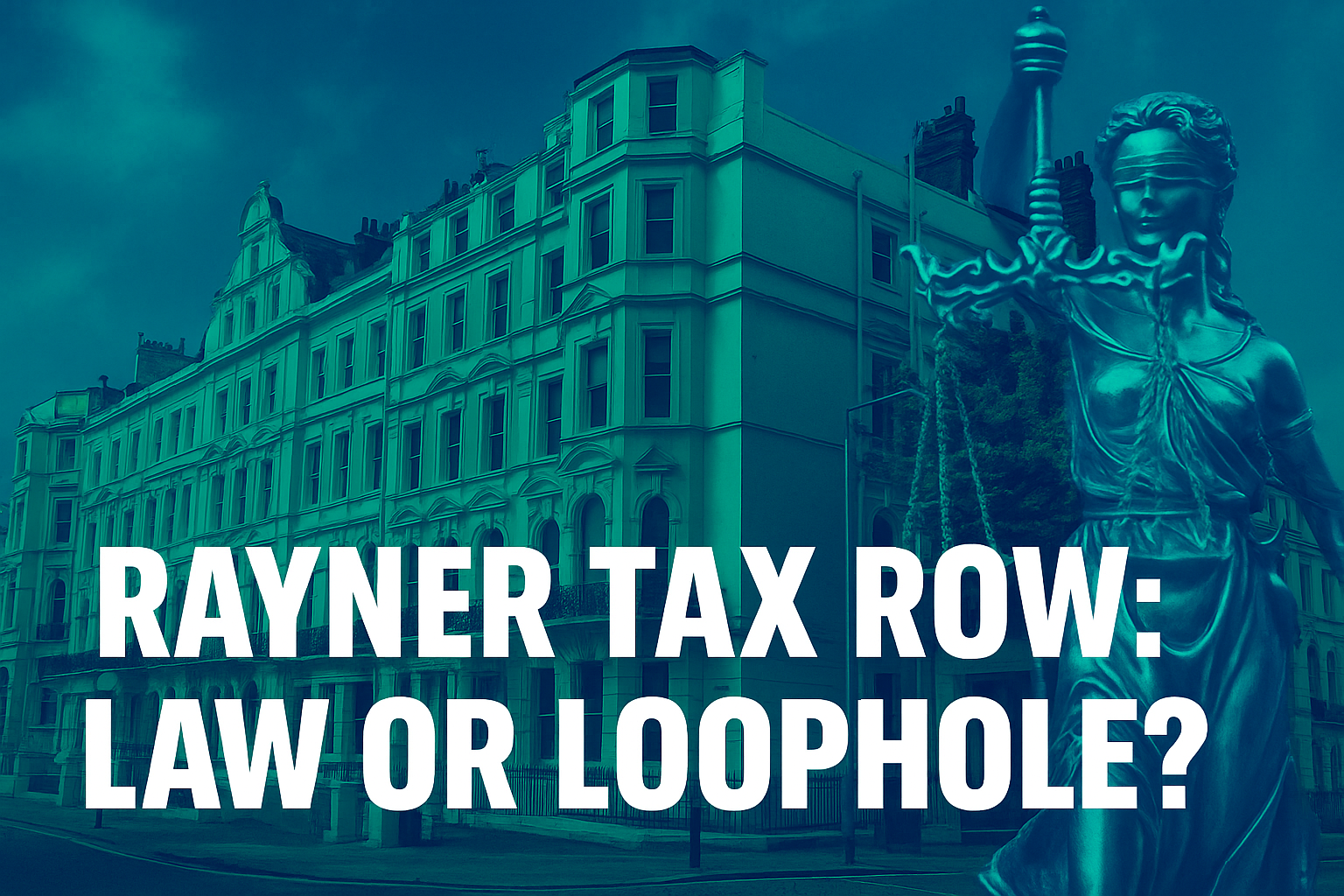The Law Must Be No Respecter of Persons.
When ministers falter on their own taxes, they weaken the very trust that sustains our democracy.
The Deputy Prime Minister, Mrs. Angela Rayner, has admitted to an underpayment of stamp duty on her £800,000 flat in Hove. The discrepancy may amount to some £40,000. She attributes the error to the complex rules of trusts and the imperfect advice of her lawyers. Yet the matter is not so much one of arithmetic as of public confidence.
Every working family who buys a modest home must calculate their duty without barristers or silks. They know the consequences of error are swift. That a senior minister responsible for housing should stumble at this hurdle offends both symmetry and fairness.
Not an Isolated Case
This is no new tale in Westminster. Nadhim Zahawi was cast down after settling a multimillion tax bill with HMRC. Hazel Blears and Maria Miller resigned when property arrangements proved too artful. David Laws lasted just 17 days at the Treasury before his own housing claims compelled retreat. Again and again, we see that those who ascend by the cry of public virtue descend by the whisper of private impropriety.
The Two Kingdoms of Law
The danger is greater than the sum unpaid. If citizens believe ministers may excuse their missteps with appeals to “complexity” while ordinary people face penalties, they conclude that there are two kingdoms within one island: one for the governed, another for the governors. Nothing corrodes democracy more surely than this suspicion.
Mrs. Rayner has spoken movingly of family burdens, divorce, and the long-term care of a disabled child. These are circumstances deserving sympathy. But the law does not bend to circumstance. It requires that all pay what is owed, regardless of biography.
Standards Above, Not Below
The public does not demand perfection of its rulers, but it does demand honesty and accountability. A minister must hold herself to standards higher, not lower, than the average householder. To shrug off a £40,000 error as “complex” is to invite disdain, not understanding.
The remedy is simple: disclose the advice received, pay the duty in full, and accept whatever consequence flows. Excuses diminish both the office and the public trust upon which it rests.
The Arithmetic of Trust
Some argue that politics should concern itself with grand designs — wars, budgets, schools — not the technicalities of property tax. Yet history shows it is the neglect of small duties that destroys great institutions. Each such lapse subtracts from the nation’s balance of trust. Only prompt repayment, open disclosure, and visible contrition can restore it.
Rectitude or Ruin?
Rome fell not for lack of orators, but for lack of integrity. Parliament will endure only so long as its members prove that the law applies equally to all. If Mrs. Rayner can demonstrate that principle — by paying in full, admitting error, and eschewing excuses — then she may yet preserve her honour and her office. If not, she will join the long line of those who discovered too late that hypocrisy is the surest weapon by which politicians die by the sword.
He that would govern others must first be exact in governing himself; for the smallest neglect in private duty becomes the greatest scandal in public trust.



